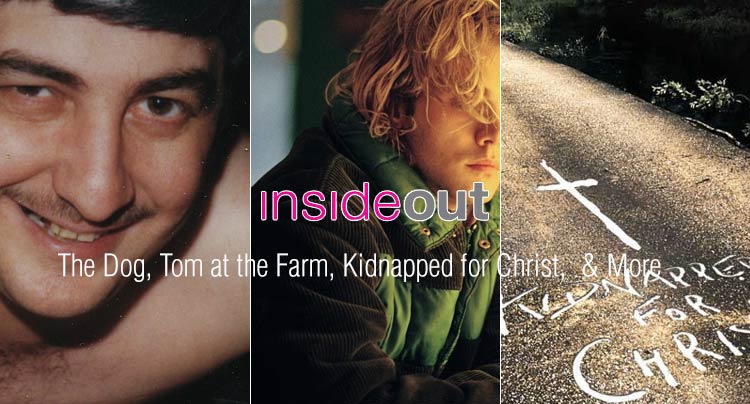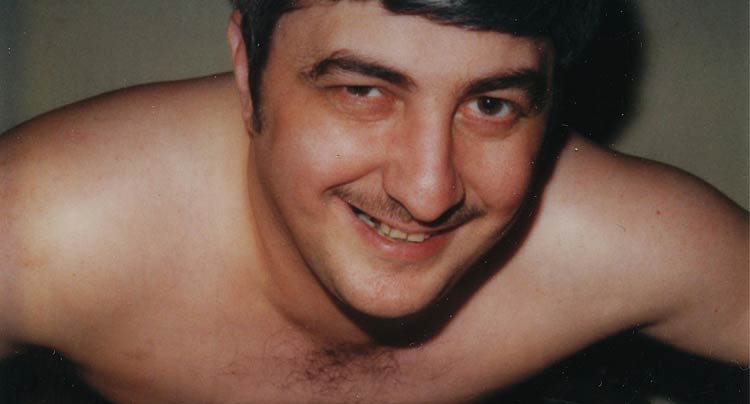Inside Out Film Festival: The Dog, Tom at the Farm, Kidnapped for Christ, & More

Before World Pride inevitably takes over all of Toronto at the end of June, the 24th Annual Toronto LGBT Film Festival is currently happening from May 22 to June 1. The festival is a great showcase of films dealing with youth and LGBT issues from around the world. This year’s line-up is already filled with some highlights, including the HBO film The Normal Heart along with Ira Sachs’ hotly anticipated Love is Strange, a film getting Oscar buzz already for its two lead performances.
We wanted to share our thoughts on a few of the films playing this year, while letting people know of a great chance to check out some little-known and important films over the next 10 days. There are many more films playing, so be sure to check out the schedule here to see what films are playing. Screening information for the films reviewed will be included below as well. You can find out more information about Inside Out at their official website, www.insideout.ca.
The Dog
Screens May 31, 2014 at TIFF Bell Lightbox

The Dog is a companion piece of sorts to Sidney Lumet’s film Dog Day Afternoon. John Wojtowicz is the man Al Pacino’s character is based on, and the subject of Allison Berg & Frank Keraudren’s documentary. Wojtowicz was married with two children before he accepted his homosexuality (while people classify Wojtowicz as gay, the self-described “pervert” is most likely bisexual) and joined the gay rights movement back in 1970s New York. He met his second wife Elizabeth, a transgender woman desperately wanting a sex change she couldn’t afford. After his wife’s frequent suicide attempts landed her in a psych ward, Wojtowicz decided to rob a bank in order to pay for the surgery. The rest, as they say, is history.
Berd and Keraudren made The Dog over a long period, following Wojtowicz (who eventually succumbed to cancer in 2006) and interviewing various people from his life. The presentation is bland, instead relying on the charisma of its subject to carry things forward. Wojtowicz also creates another major problem for the film: he’s shown in a positive and sometimes sympathetic light, a decision that makes zero sense considering what the man has done. Many parts of his story are tossed aside or glossed over, the most sickening example being when he casually talks about sexually assaulting someone like it’s a funny anecdote. Interviews with Wojtowicz’s mother don’t provide any pertinent material, and only a few talking head interviews give some sort of context to Wojtowicz’s story. The Dog picks a subject worth exploring in a documentary, it just goes about it in one of the worst possible ways.
Kidnapped for Christ
Screens May 25, 2014 at TIFF Bell Lightbox

Director Kate Logan started Kidnapped for Christ as a young film student and evangelical Chrisitian. While doing missionary work in the Dominican she hears of a Escuela Caribe, a nearby camp helping troubled teens. She looks at it as the perfect opportunity for a documentary, profiling troubled teens and watching their path to recovery through faith. She spent over six weeks at Escuela Caribe, and soon discovered an entirely different story.
Most of the children she interviewed didn’t show signs of needing to be shipped off to a $72k a year behavioural school. Beth is a young girl with nothing more than intense anxiety problems, and Tai is a teenager with drug problems as a result of past traumas in her life. Logan eventually realizes the camp is like an abusive labour camp more than anything. Students are classified into different levels based on their behaviour, and even the tiniest infraction against the camp’s absurd standards results in punishments ranging from solitary confinement (“The Quiet Room”) to physical abuse (referred to as “swats”). Logan focuses primarily on David, a 17 year old forcefully taken from his home after coming out to his parents.
Logan’s amateur filmmaking both helps and hurts the film. Her own commentary is fascinating at times, as she clearly has no idea how to pursue the film she wants to make once she starts getting pushback from the camp’s officials. Watching her try to adapt herself to continue exposing the camp, along with inserting herself into the story when she sneaks a letter from David out of the camp, is exciting to watch. Logan’s transformation from a passive observer to an active one only works in small doses though. Her involvement can sometimes feel too self-indulgent, like when she narrates about questioning her faith as a result of filming. The same goes for the last block of the film, a sort of half-assed epilogue briefly going over how places like Escuela Caribe house thousands of teens all over the world. These issues are relatively minor though, as Kidnapped for Christ has a topic that, at its core, is bound to compel viewers.
Tom at the Farm
Screens May 26, 2014 at TIFF Bell Lightbox

Tom at the Farm is Xavier Dolan’s fourth film, and it’s a departure for the young filmmaker. Dolan heads into genre territory, adapting a play about a young man (Dolan) visiting his deceased boyfriend’s estranged family. The family, a mother and son living on a farm in rural Quebec, pose a lot of problems for Tom. The mother (Lise Roy) never knew about her son’s sexual orientation, and her other son (Pierre-Yves Cardinal) terrorizes Tom into making sure he won’t tell her the truth. The relationship between Tom and his dead boyfriend’s family soon gets a lot more complicated, as Tom starts working at the farm while enduring constant abuse from the brother.
Dolan has quite the eye for visuals, and Tom is his best film yet. That doesn’t exactly say too much though, as Dolan has continually made so-so films up to this point. Tom at the Farm suffers from writing that eventually steers into the implausible. Tom’s decision to stay at the farm increasingly makes no sense, mainly because he’s such an underdeveloped character. Roy and Cardinal, on the other hand, are excellent as the grieving family. This turns Tom at the Farm into the kind of thriller where characters feel more like puppets for the writer than actual people. It’s this kind of poor writing, along with several ineffective visual choices from Dolan, that hold the film back.
A full-length review of Tom at the Farm will go online next week to coincide with its Canadian release
The Case Against 8
Screens May 30, 2014 at TIFF Bell Lightbox

We’ve talked about The Cast Against 8 before in our Hot Docs coverage earlier this year, but it’s worth mentioning again. This is a well-done documentary dealing with the legal battle to declare California’s Proposition 8 as unconstitutional. Through its profiles of the lawyers working on the case, along with the two same-sex couples serving as plaintiffs, The Case Against 8 is yet another reminder of how same sex equality is a human rights issue, not a political one. It made our Top 10 of Hot Docs, and if you weren’t able to catch it back in April you should definitely see it here while you have the chance.
